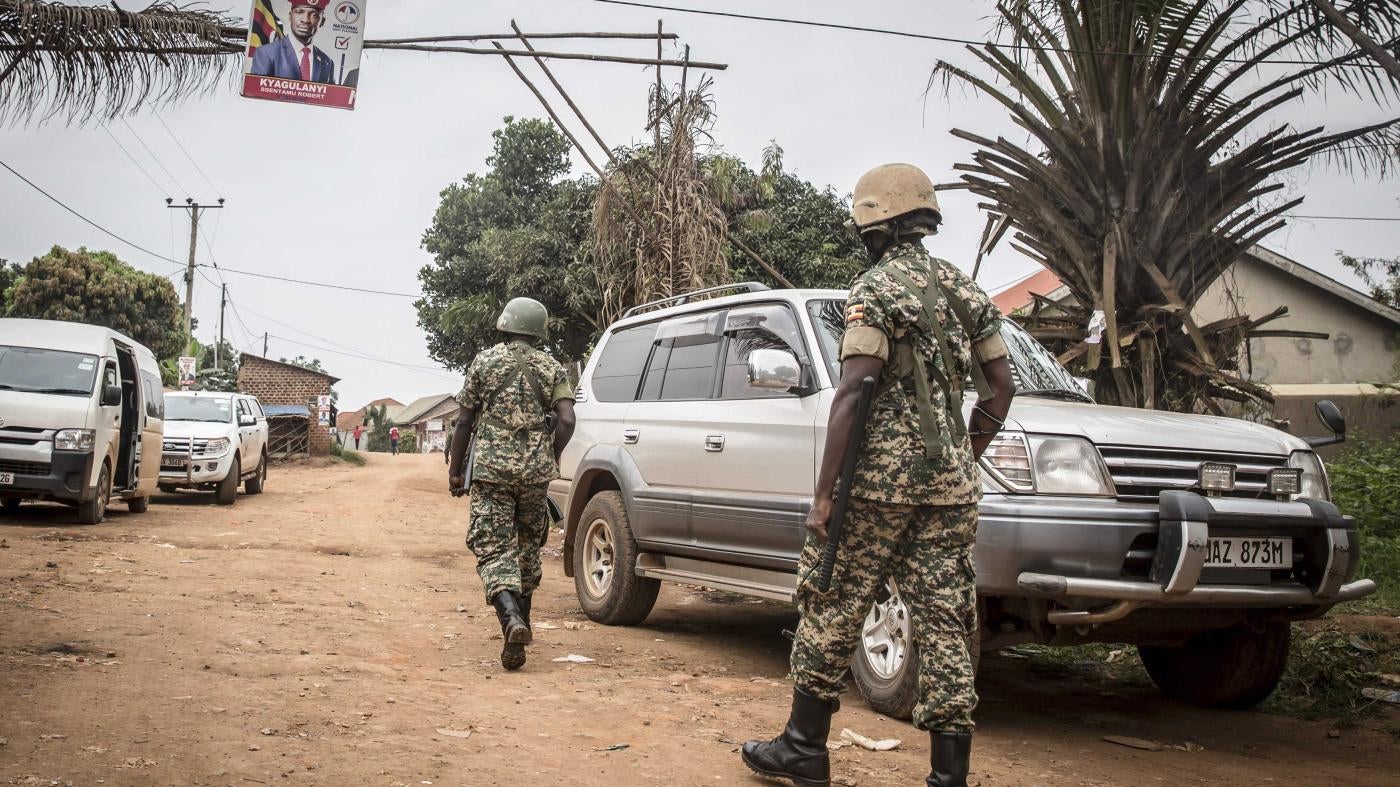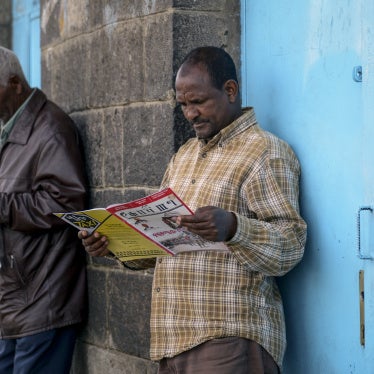Who are security forces “abducting” and why?
Police and other security forces are picking up people for varying reasons. Some were picked up after they fell out with business partners. Others were accused of committing crimes such as burning down a school or stealing a boda boda (motorcycle taxi). Many of the people that I spoke with were government critics, supporters of the political opposition, or people accused of participating in the November 2020 protests, during which at least 54 people were killed by security forces. Some of the victims were later released, but many have never been seen again.
How do these “abductions” happen in Uganda?
Typically, armed security officers – sometimes in uniforms, although other times not – pick people from the streets, at their workplaces or their homes, even in broad daylight on busy streets, and take them away in minivans with tinted windows. They don’t always take their “abductees” to prisons or police stations. Instead, they’ve kept them in “safehouses,” which are supposedly meant for witness protection programs. These are normal homes in residential areas, which from the outside, look like beautiful homes. In Uganda, it’s normal for suburban homes to be fenced off with high concrete walls and closed-off gates so it’s impossible to tell that what looks like a regular home might actually harbor horrific secrets.
What happens in the safehouses?
The high gates and wall fences of the safehouses hide the military presence within. Former detainees described to me how military tents are pitched inside the compound with armed uniformed soldiers standing guard.
When people arrive at the safehouses, they go through a formal registration system like putting down their names and contacts, almost like they’re checking into a hotel. After this initial mundane reception, the torture would begin for many: the officials would chain them and hang them from the ceiling for hours, as if they were on a cross, with their hands outstretched. They also rape, in a few cases, and beat them during interrogations for days, sometimes months.
I spoke to people who were held for months on an island in Lake Victoria where they were forced to work on a farm. All these abuses happen outside Uganda’s existing legal systems, like a rotten parallel justice system.
What’s life like for someone who survived torture?
These detentions are horrific experiences. It has happened to people from different segments of society, from prominent figures to ordinary people alike. It leaves people feeling helpless and afraid, constantly looking over their shoulders because they never knew when it might happen, or if they’re next.
The detention happens outside the law, so people appear to have inexplicably gone away for long periods of time, with loved ones left in the dark to worry about them. It is known as an “enforced disappearance,” and the fear and pain caused to both the detainee and their families is one of the reasons they are absolutely prohibited as a crime under international law.
People also lose their livelihoods or jobs since they don’t show up at work for unexplained reasons. Their businesses collapse when they are not there to run them. This loss of income is further compounded because those in charge sometimes demand payment in exchange for their freedom.
The beatings and rapes in detention cause immense trauma, and leave physical and emotional scars that are often carried by survivors for the remainder of their lives. They do not receive the medical care they urgently need during detention. When they are finally free, they lack the financial resources necessary for the complex treatment required to help their physical and mental health recover. The authorities fail to provide them with medical assistance, financial support, or justice that they need. They are isolated.
This isolation is sometimes deepened by social stigma against former detainees. A woman told me the police abducted her while she was pregnant. She was beaten and raped in detention, causing her to miscarry while still there. When she was eventually released, her husband shunned her because of the rape and miscarriage. She is rebuilding her life alone with no family or government support.
Why do enforced disappearances and illegal detention continue in Uganda?
Ugandans have been speaking out against these abduction style-detentions, enforced disappearances, torture, and unlawful detention for a long time and they want the government to take action.
In 2020, the Parliament’s human rights committee published a report on abductions and torture in the safehouses run by the Internal Security Organization. The committee recommended that the government prosecute the officers responsible for torture, but nothing was done. Instead, the former director of internal security, Frank Bagyenda, was nominated by President Yoweri Museveni as Uganda’s ambassador to Angola.
The president has spoken out against torture, blaming it on “a few rogue officers.” But since so few people are held accountable, there is no deterrent against continuing the practice or torture. These abuses continue, despite the public outcry and despite survivors’ activism.
Uganda has failed survivors of abduction, torture, and unlawful detention in many ways.
But survivors and activists are not giving up. They continue to share their stories and demand justice. There’s an association of survivors of these detentions that has documented their experiences. This group tries to find resources to support survivors who require medical treatment or have other needs. They speak with the media, government officials, and other nongovernmental organizations, when they can, to create awareness about the lasting effects of torture on their lives.
Instead of ignoring these groups, the authorities should immediately end its unlawful practices – the enforced disappearances, arbitrary detentions, torture – and fulfill its obligations to survivors by providing them with compensation and treatment, and bringing their abusers to justice.
*This interview has been edited and condensed.





